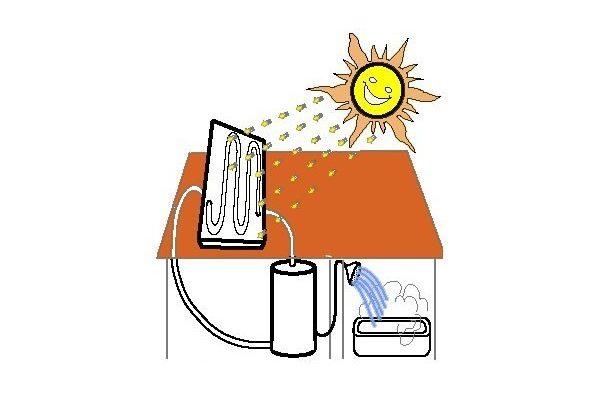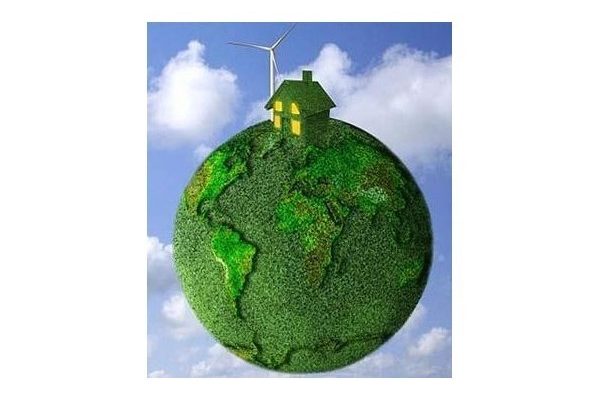Solar photovoltaic installations without batteries are characterised by minimal maintenance requirements. However, it is advisable to periodically clean the surface of the solar panels. Dirt accumulated on the surface of the solar panels can significantly reduce the energy production of the installation. In the worst case, the impact can be up to 6% loss of production in areas with low rainfall.
Water and a brush are recommended for cleaning the solar panels. No chemicals or cleaning products that are not approved in advance by the panel manufacturer may be used.
Cleaning solar panels is a simple activity, but there are aspects that can often go unnoticed and need to be taken into account. The following are the most important aspects to consider:
1) Safety and risks associated with falls. In the case of a rooftop installation, all necessary measures must be taken to ensure that the person carrying out the cleaning work cannot have an accident related to work at height. It is advisable to use all safety and protection measures to avoid any accidents. Before starting any work on the roof or near the solar panels, make sure to follow proper safety practices. Use personal protective equipment, watch out for slippery surfaces and avoid working in dangerous weather conditions.
2) Please note that no chemicals or abrasives that may damage the solar panel may be used. The manufacturer of the panels may cancel the warranty of the equipment in case of damage for this reason. Most of the time, simply spraying the panels with clean water may be sufficient to remove the dirt. If the panels are dirtier, you can use water and a mild, non-abrasive soap to clean them.
3) Be careful not to step on or place any kind of point weight on the surface of the panel. Even if no visible damage is caused, any point weight on the panel can microcrack the solar cells, causing overheating and permanent production losses for the rest of the panel’s lifetime.
4) It must be taken into account that the surface temperatures of the panel when there is high solar radiation can be very high. In some cases temperatures of more than 80ºC can be reached. Because of this it is recommended to clean the panels during the hours of low solar radiation to avoid having any problems associated with the high temperature of the solar panel.
5) The brush must be soft and without any elements that could damage the surface of the solar panel. If there is stubborn dirt or stains on the panels, you can use a soft brush or a non-abrasive sponge to gently scrub the surface. Be sure not to apply too much pressure to avoid scratches.
6) Frequency of cleaning: The frequency of cleaning will largely depend on the location of the panels and the environmental conditions. In areas with high pollution, dust, pollen or dirt, it may be necessary to clean the panels more frequently. In general, cleaning at least once or twice a year is recommended.
7) Cleaning schedule: The best time to clean solar panels is early in the morning or late in the afternoon, when the sun is not directly overhead. This will prevent the water from evaporating quickly and leaving stains.
8) Shutting down the system: Before cleaning the solar panels, disconnect the solar power system by turning off the inverter switch or following the manufacturer’s instructions to put it into shutdown mode.
9) Proper rinsing: Be sure to rinse the panels thoroughly after cleaning to remove any soap residue. Mineral or demineralised water is preferable to avoid leaving hard water spots.
10) Sloped panels: If your panels are at a steep angle, rain may help keep them clean to some extent. However, in areas with little rain, you may need to manually clean them more frequently.
11) Qualified professionals: If you do not feel comfortable cleaning the solar panels yourself, or if they are located in a hard-to-reach location, consider hiring qualified professionals to do the cleaning.
12) Regular maintenance: In addition to cleaning, have the solar system regularly maintained by professionals. This includes checking wiring, connections and components to make sure everything is working properly.
In most EU countries, it is recommended that the panels are cleaned about twice a year. Finally, it should be noted that the rain that naturally falls on the solar panels does not have the ability to clean as effectively as a manual brush cleaning.


Pol Parareda Farriol es ingeniero industrial y MBA, con más de 15 años de experiencia internacional en el sector de la energía solar fotovoltaica y las energías renovables. Actualmente Director en Tienda Solar, trabaja en el desarrollo y gestión de soluciones de autoconsumo, sistemas fotovoltaicos y almacenamiento con baterías para el mercado residencial y profesional.
A lo largo de su carrera ha ocupado puestos de responsabilidad en empresas líderes del sector como Weidmüller, SunPower, Sunco Capital y Hilti, desempeñando funciones en ingeniería, desarrollo de producto, operaciones, O&M, gestión comercial y dirección estratégica de proyectos solares, tanto a pequeña escala como en grandes plantas fotovoltaicas internacionales.
Ha liderado proyectos y equipos en Europa, Latinoamérica y Asia, participando en el desarrollo de más de cientos de MW en proyectos solares, negociación de PPAs, estrategias EPC y optimización de sistemas fotovoltaicos. Además, ha sido docente de energía solar fotovoltaica en programas de máster en energías renovables en instituciones como la Universidad Carlos III de Madrid





